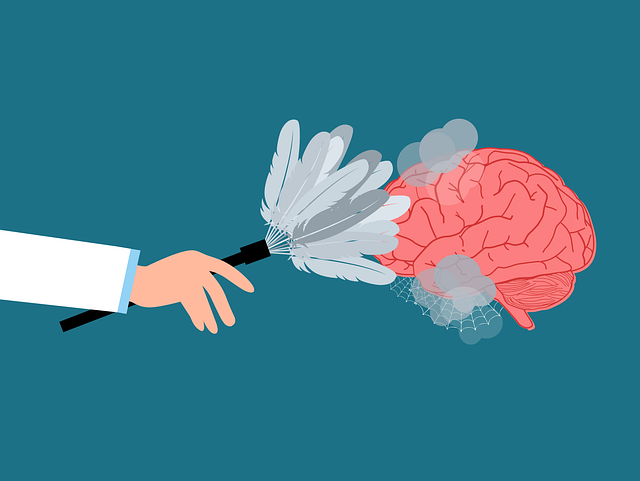Depression, a serious mental health issue, can be mitigated through early recognition of its signs, such as persistent sadness, loss of interest, and changes in appetite/sleep. Lafayette ASL Therapy, along with the ASL community, raises awareness, normalizes conversations about depression, and provides crucial support to at-risk individuals. Proactive mental wellness includes lifestyle adjustments like exercise, balanced nutrition, and sleep, coupled with creative outlets, mindfulness, and self-care tailored to individual needs, such as Lafayette ASL therapy. Community outreach programs and journaling exercises further reduce risk factors by fostering emotional regulation and connection. Effective stress management through practices like regular exercise, mindfulness meditation, and hobbies, combined with unique emotional expression tools from Lafayette ASL Therapy, enhances mental health and resilience.
Depression is a prevalent yet manageable condition, and early prevention is key. This article explores various strategies to combat this mental health challenge, from recognizing subtle signs to empowering yourself with effective coping mechanisms. We delve into the significance of Lafayette American Sign Language Therapy as an innovative approach for early intervention, offering hope for those at risk. Additionally, we discuss lifestyle adjustments, building support networks, and managing stress to foster proactive mental well-being.
- Understanding Depression: Recognizing the Signs and Symptoms
- The Role of Lafayette American Sign Language Therapy in Early Intervention
- Lifestyle Adjustments for Proactive Mental Health Care
- Building a Support Network: Connecting with Others for Prevention
- Effective Coping Mechanisms: Managing Stress and Emotional Well-being
Understanding Depression: Recognizing the Signs and Symptoms

Depression is a common yet serious mental health condition that significantly impacts an individual’s daily life and overall well-being. Recognizing the signs and symptoms early on is crucial for effective prevention and timely intervention. The American Sign Language (ASL) community, including therapists like those at Lafayette ASL Therapy, plays a vital role in increasing public awareness about mental health issues. Through their efforts, they help to normalize conversations around depression and ensure that those who may be at risk receive the necessary support.
Key indicators of depression include persistent feelings of sadness, loss of interest or pleasure in activities once enjoyed, changes in appetite and sleep patterns, fatigue, difficulty concentrating, feelings of worthlessness, and recurrent thoughts of death or suicide. Identifying these signs early can lead to a comprehensive risk assessment for mental health professionals, enabling them to provide appropriate care and build resilience in individuals before the condition worsens. Public awareness campaigns development centered around recognizing these symptoms is another effective strategy to foster understanding and reduce the stigma surrounding depression.
The Role of Lafayette American Sign Language Therapy in Early Intervention

The Lafayette American Sign Language (ASL) Therapy program plays a pivotal role in early intervention for mental health issues, particularly depression. By incorporating ASL into therapeutic practices, this initiative breaks down communication barriers often faced by individuals with hearing impairments or those who are non-verbal. Early identification of depressive symptoms is crucial; ASL therapy enables professionals to reach and support at-risk populations more effectively.
This unique approach not only enhances mental wellness but also contributes to the production of the Mental Wellness Podcast Series, sharing valuable insights on social skills training and mental health awareness. Through engaging stories and expert discussions, the podcast series further highlights the importance of early intervention strategies, ensuring that folks facing depression receive timely support tailored to their needs.
Lifestyle Adjustments for Proactive Mental Health Care

Proactive mental health care is a key aspect of preventing depression and promoting overall well-being. Simple lifestyle adjustments can make a significant difference in supporting emotional resilience. Incorporating regular physical activity, for instance, releases endorphins that boost mood and reduce stress. Additionally, maintaining a balanced diet rich in nutrients essential for brain health can improve mental clarity and stability. Adequate sleep is another pillar; prioritizing consistent rest patterns allows the body to regulate hormones related to stress and emotion.
Beyond these foundational practices, engaging in creative outlets like art or music therapy, practicing mindfulness through meditation or Lafayette American Sign Language (ASL) therapy, and keeping a Mental Wellness Journal can be incredibly beneficial. Self-care practices tailored to individual needs, such as setting boundaries, practicing gratitude, and connecting with supportive communities, further reinforce emotional healing processes. Embracing these proactive strategies ensures a holistic approach to mental wellness, empowering individuals to take charge of their emotional health.
Building a Support Network: Connecting with Others for Prevention

Connecting with others is a powerful tool in the prevention of depression. Building a strong support network allows individuals to lean on one another during challenging times. Lafayette American Sign Language Therapy promotes this through community outreach programs that facilitate connections and foster emotional regulation. Engaging in these initiatives helps combat feelings of isolation, providing a sense of belonging and reducing risk factors associated with depression.
Journaling exercises focused on mental wellness can further strengthen this support system. By documenting thoughts and emotions, individuals gain valuable insights into their mental health trajectory. This practice encourages self-awareness and promotes proactive measures to address any emerging signs of depression. Combining these strategies creates a robust defense against depression, offering guidance and a sense of community.
Effective Coping Mechanisms: Managing Stress and Emotional Well-being

Managing stress and cultivating emotional well-being are essential components of preventing depression. Effective coping mechanisms involve a combination of self-care practices and compassion cultivation, which can significantly enhance resilience to life’s challenges. Incorporating activities like regular exercise, mindfulness meditation, and engaging in hobbies can help individuals process emotions healthily and reduce the risk of depressive episodes.
Lafayette American Sign Language (ASL) Therapy offers unique tools for emotional expression and communication, particularly beneficial for those seeking alternative forms of support. Additionally, Cultural Competency Training provided by healthcare providers plays a crucial role in understanding individual experiences and ensuring tailored interventions. By integrating these strategies, individuals can navigate life’s complexities with greater ease, fostering overall mental health and resilience.
In conclusion, depression prevention involves a multifaceted approach. By understanding depression’s signs and symptoms, utilizing early intervention methods like Lafayette American Sign Language Therapy, making proactive lifestyle adjustments, building a strong support network, and adopting effective coping mechanisms, individuals can significantly enhance their mental well-being. Integrating these strategies into daily life fosters resilience and promotes a healthier, more balanced state of mind.













